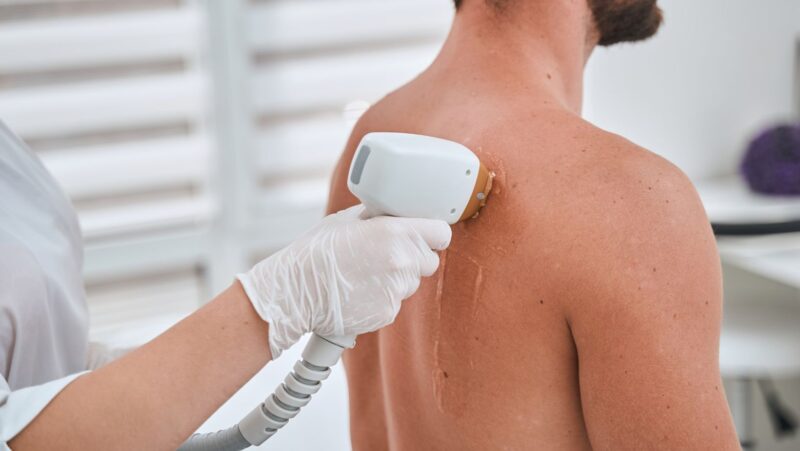
Good eyesight is essential for daily life. Reading, driving, working, and enjoying hobbies all depend on clear vision. While procedures like LASIK eye surgery can correct refractive errors, maintaining healthy eyes daily helps preserve vision and supports long-term eye health.
1. Schedule Regular Eye Exams
Routine eye exams detect changes in vision early. Many conditions, including glaucoma, cataracts, and retinal issues, do not cause noticeable symptoms until advanced stages.
Adults should see an eye care professional every one to two years. People with chronic conditions like diabetes or a family history of eye disease may need more frequent visits. Early detection helps prevent serious vision problems and supports better outcomes if corrective procedures such as LASIK eye surgery become necessary.
2. Protect Eyes from UV Light
Ultraviolet rays from the sun can damage the eyes over time. Long-term exposure increases the risk of cataracts and other vision problems. Sunglasses that block 100% of UVA and UVB rays protect the eyes effectively.
Wearing a wide-brimmed hat provides additional defense. Even on cloudy days, UV light can penetrate and affect the eyes. Daily protection reduces long-term damage.
3. Follow Healthy Screen Habits
Extended screen time can cause dryness, blurred vision, and headaches. The eyes blink less frequently when focusing on digital devices, reducing natural lubrication.
Use the 20-20-20 rule: every 20 minutes, look at an object 20 feet away for 20 seconds. Adjust screen brightness and distance to minimize strain. Artificial tears may help with dryness. Regular breaks prevent discomfort and support long-term visual comfort.
4. Eat a Vision-Supporting Diet
A diet rich in vitamins A, C, and E, as well as antioxidants like lutein and zeaxanthin, helps protect the eyes from age-related changes. Leafy greens, citrus fruits, fish, and colorful vegetables provide these nutrients naturally.
Omega-3 fatty acids, found in fish and flaxseeds, support retinal health. Staying hydrated also helps maintain eye moisture and overall comfort.
5. Maintain Good Sleep and Lighting Habits

Sleep is essential for eye recovery. Fatigue can cause temporary blurred vision and light sensitivity. Adults should aim for seven to nine hours per night.
When reading or working, use balanced lighting that is bright enough without causing glare. Position lamps carefully to reduce strain. Proper rest and lighting habits help reduce discomfort and support long-term vision.
6. Avoid Smoking and Excessive Alcohol
Smoking reduces blood flow to the eyes and accelerates lens and retinal damage. Over time, this increases the risk of cataracts and macular degeneration.
Alcohol in large amounts can contribute to oxidative stress, which negatively affects eye health. Reducing or eliminating these habits protects vision and promotes overall wellness.
7. Protect Your Eyes During Activities
Eye injuries can occur at home, work, or during sports. Wearing protective glasses or goggles reduces the risk of trauma caused by debris, chemicals, or impacts.
Activities like woodworking, racquet sports, and construction work carry higher risks. Preventive measures are always easier than corrective treatments.
8. Manage Chronic Health Conditions
Conditions like diabetes and high blood pressure affect the eyes. Elevated blood sugar or blood pressure can damage small blood vessels in the retina.
Regular checkups and adherence to treatment plans help prevent vision complications. People with diabetes should have annual eye exams to detect early signs of diabetic retinopathy.
9. Recognize Warning Signs Early
Blurry vision, glare sensitivity, or frequent prescription changes can indicate developing eye issues. Early evaluation allows timely intervention.
Reporting changes to an eye care professional quickly helps prevent worsening conditions. Keeping a simple log of vision changes can provide useful information for evaluations.
10. Understand Options for Corrective Procedures
When refractive errors interfere with daily life, procedures like LASIK eye surgery may be considered. LASIK corrects vision by reshaping the cornea and can reduce dependence on glasses or contact lenses.
Discussing expectations, recovery, and potential risks with an ophthalmologist ensures the best outcomes. Even with surgery, maintaining healthy habits supports lasting vision clarity.
Final Thoughts
Maintaining healthy eyes combines preventive care, healthy habits, and professional guidance. Regular exams, UV protection, proper nutrition, and protective measures all support long-term vision.
While LASIK eye surgery offers a solution for some refractive errors, daily habits play an important role in preserving natural vision. Small, consistent steps can keep eyes clear and comfortable for years to come.














